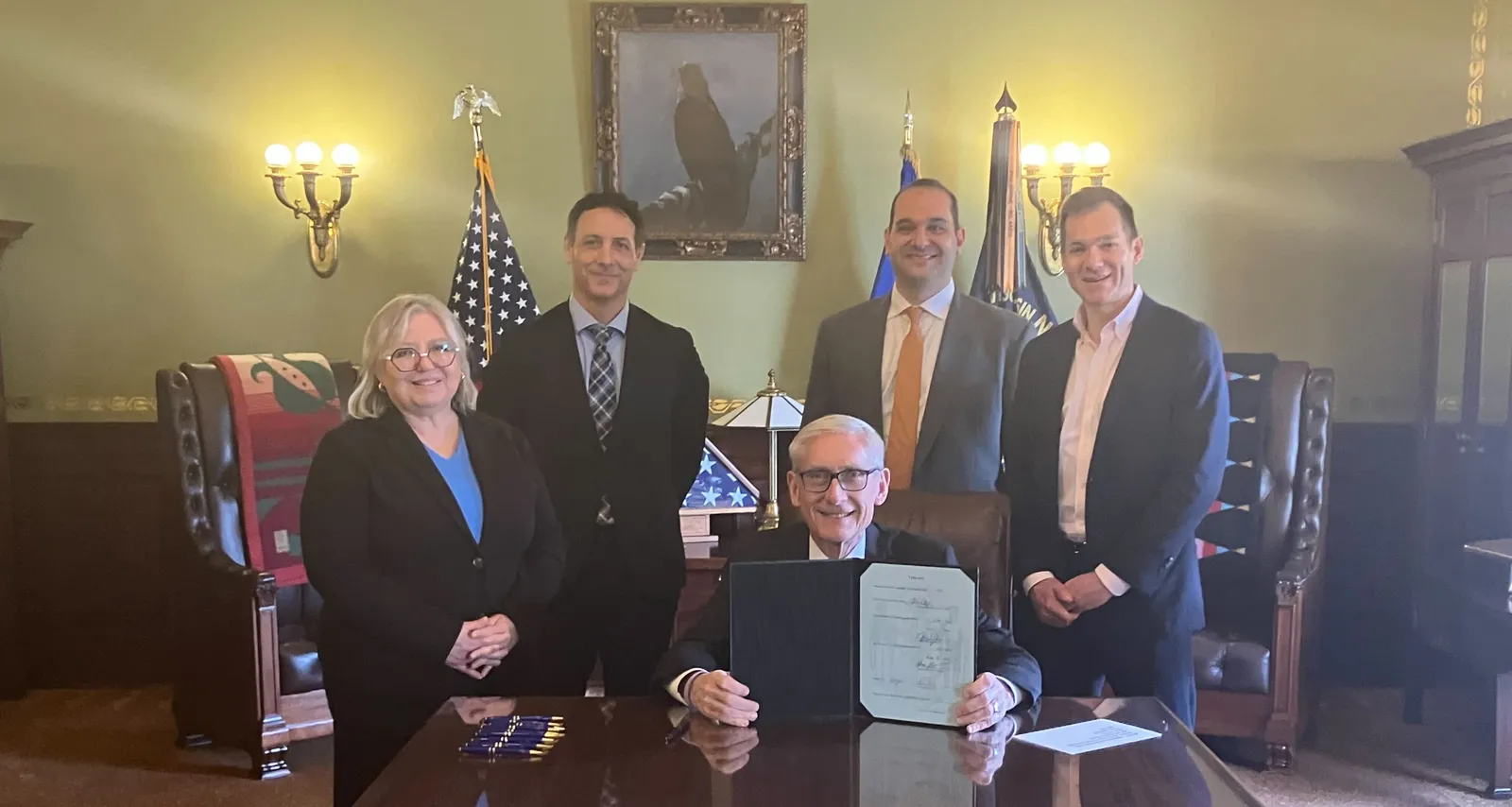Wisconsin has become the third state to pass a law calling for earned wage access providers to be licensed, but it kept EWA payments from being labeled as loans.
Wisconsin Democrat Gov. Tony Evers signed the bill Thursday, creating a “regulatory framework” to oversee such providers operating in the state, regardless of whether they are located in the state, according to a press release from his office. The companies will be licensed by the state’s Department of Financial Institutions.
Companies that provide earned wage access, sometimes referred to as on-demand pay, offer digital tools that let employees tap their wages before their regularly scheduled payday. There are dozens of companies that offer such services, including DailyPay, EarnIn and Payactiv, with varying business models. Some providers offer the services in partnerships with employers, while others don’t.

While the Democratic governor signed the bill into law, it was mainly Republican lawmakers who sponsored it. This bill “will give employers the ability to better retain workers and provide their employees faster pay for work completed,” said a November press release from one Republican sponsor, Wisconsin Rep. Alex Dallman.
The new requirements for providers of earned wage access services are meant “to protect consumers,” the release said, but some consumer advocates don’t see it that way.
The National Consumer Law Center has been opposing the industry’s effort to craft state laws, like the one that was signed in Wisconsin, that are friendly to the industry. Like payday loans offered at exorbitantly high interest rates, EWA fees can be excessive and “horribly destructive,” said Lauren Saunders, who is associate director of the center. The new Wisconsin law won’t protect Wisconsin residents, she argued in an interview.
Missouri and Nevada passed similar laws last year, establishing regulatory structures calling for registration outside the reach of existing lending laws. That approach is enabling workers to use their wages when they need them and to avoid higher cost alternatives, contend industry trade groups, including the American Fintech Council.
“Missouri families should have the ability to access the wages they have already earned from responsible companies that are providing an alternative to high-priced payday and other predatory options,” American Fintech Council CEO Phil Goldfeder said last year.
Some states, including California and Connecticut, have taken a different tack, moving to subject EWA payments to lending laws that have provisions for policing interest rates and transparency.
In Connecticut, the Department of Banking last year instituted new guidance with respect to small loans that was expected to increase regulation in that state for earned wage access providers. One company, FlexWage Solutions, received approval late last year from the Connecticut department to offer its services in the state without applying for a lending license.
Maryland has also been grappling with the issue, with legislative proposals fueling debate.
At the federal level, the Consumer Financial Protection Bureau said it supported the California Department of Financial Protection and Innovation’s approach to EWA and signaled it would issue a policy on EWA soon, but so far it hasn’t.
“Given the many developments in this market, the CFPB plans to issue further guidance to provide greater clarity concerning the application of federal law to income-based advance products,” the agency said in a Dec. 1 website post commenting on the California move to register and examine companies providing such EWA services.
In February, two Republican U.S. representatives, Bryan Steil and French Hill, introduced a congressional bill that won support from industry trade groups.
Meanwhile, DailyPay and other industry players are likely to keep up their campaign to win over lawmakers to rules that mainly focus on licensing or registration of providers. “We look forward to continuing our proactive work with policymakers to encourage similar regulatory frameworks that allow for our industry to grow responsibly,” DailyPay Chief Legal and Strategy Officer Jared DeMatteis said in a press release from that provider Thursday.













